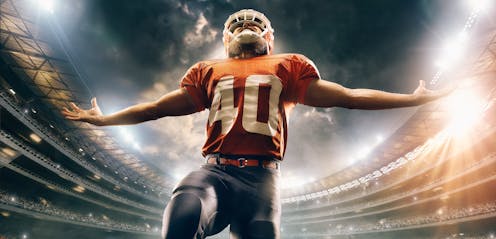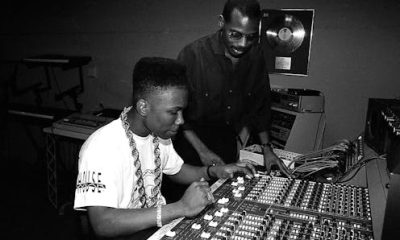
Money disputes abound between players and universities. Aksonov/E+ via Getty Images
Ever since the NCAA permitted college athletes to get paid by companies that use their names, images and likenesses, athletes have tested the limits of their increasing power.
One of the latest examples is Matthew Sluka, the starting quarterback for UNLV’s first three games of the 2024 season. After helping lead UNLV to three wins and potential contention for a prestigious College Football Playoff bid, Sluka announced on Sept. 24, 2024, he would sit out the rest of the season. His decision is the result of a dispute over compensation for use of his name, image and likeness, commonly referred to as NIL.
While the decision sent shock waves through college athletics, it also shines light on the changing balance of power that favors athletes over their coaches and universities.
As a former lawyer and college athletics compliance administrator – and also as a current university faculty member who has authored several law review articles on legal issues related to NIL – I suggest that Sluka’s situation exemplifies how collegiate athletes can use recent NCAA rules changes to improve their financial situation in the NIL era of college athletics.
Promises and denials
Sluka’s NIL agent claims a UNLV assistant coach failed to fulfill a promise he made Sluka during the recruiting process. That promise, according to Sluka’s agent, was that Sluka would receive US$100,000 of NIL compensation from an NIL collective should he attend UNLV. NIL collectives are generally formed to pool individuals’ and businesses’ funds to provide NIL opportunities and compensation for athletes.
Any such promise by a UNLV assistant coach would violate current NCAA policy. That’s because NCAA policy prohibits coaches from making NIL compensation offers contingent on whether a student enrolls. NIL collectives, on the other hand, may negotiate with athletes during the recruiting process as the result of a U.S. District Court ruling. That ruling prohibits the NCAA from penalizing collectives that negotiate NIL compensation with athletes during the recruiting process.
In a forthcoming BYU Law Review article, however, I suggest that a university whose star athlete transfers because another school’s collective recruited the athlete possesses a viable legal claim against the collective. That claim would be for inducing the athlete to transfer and violate their athletics scholarship agreement.
UNLV denies Sluka’s version of events. The university asserts that Sluka’s representative demanded more compensation from UNLV and its NIL collective in order for Sluka to continue playing. UNLV says it then refused, as such a “pay-for-play” agreement violates NCAA policy, which states that athletes may not accept NIL compensation based on “play” or on-field results.
Perceptions and ‘pay-to-play’
In Sluka’s case, further complicating things is the issue of whether Sluka’s NIL representative is properly registered with the state as an agent, as required by Nevada law. The state may be interested in pursuing enforcement, given the Nevada secretary of state’s relationship with UNLV’s NIL collective. More specifically, Nevada Secretary of State Francisco V. Aguilar co-founded Blueprint Sports, which operates the collective.
NCAA rules allow a football player to retain a year of eligibility if they play in four or fewer games in a season. Sluka exercised this ability by leaving his team. There is little that UNLV can do about it beyond taking away Sluka’s athletic scholarship for leaving the team.
Universities, however, must be increasingly sensitive to providing the necessary procedures, such as hearings and appeal opportunities, before disciplining athletes in the NIL era. As I explain in a forthcoming SMU Law Review article, a recent U.S. District Court decision involving then-University of Illinois men’s basketball player Terrence Shannon Jr. precluded the university from enforcing its suspension of Shannon without providing appropriate processes, lest he lose out on NIL compensation, which the court classified as a constitutionally protected interest.
Issues of fairness linger in the era of NIL deals for college athletes.
David Madison via Getty Images
A slew of lawsuits
Before it granted college athletes the ability to get paid through NIL deals, the NCAA faced long-standing criticism that its policies were unfair to athletes. The argument was that athletes benefited relatively little compared with the NCAA, conferences and universities, even though it was the athletes who provided the product. Along those lines, former college football stars Terrelle Pryor, Reggie Bush and Denard Robinson all recently filed separate lawsuits against the NCAA over denied NIL compensation opportunities.
Some college football luminaries are now questioning whether the pendulum of power has swung too far in favor of athletes in the NIL era. Examples include former Alabama head coach Nick Saban and former Ohio State quarterback and longtime ESPN commentator Kirk Herbstreit. Saban has openly wondered whether the current college football model is sustainable. Herbstreit has lamented “the players having all the control” without any accountability to their coaches and universities.
High-profile college football players, such as quarterbacks Kelly Bryant and D’Eriq King and receiver Gary Bryant Jr., previously exploited NCAA rules permitting them to play in four games and then transfer to another university without sacrificing a season of competition eligibility.
At least publicly, their decisions were due to on-field considerations such as playing time. Sluka’s decision to forgo playing the rest of the season and transfer was different. It is the first time – but likely not the last – a college athlete has publicly based their decision to leave their team mid-season on an NIL dispute.
Sluka’s departure from UNLV makes clear that collegiate athletes’ power to move freely between universities in pursuit of their best financial situation has greatly increased. Meanwhile, their coaches’ and universities’ power to keep them on the team and participating has significantly decreased.
While my full-time employment is as a faculty member at the University of Iowa, I provide consulting services on a contractual basis on the side for universities and athletics conferences. However, I have never performed consulting services for UNLV or any of the individuals mentioned in this piece and do not believe my consulting conflicts in any way with publishing this piece.
Advertisement

Advertisement
Contact Us
If you would like to place dofollow backlinks in our website or paid content reach out to info@qhubonews.com











